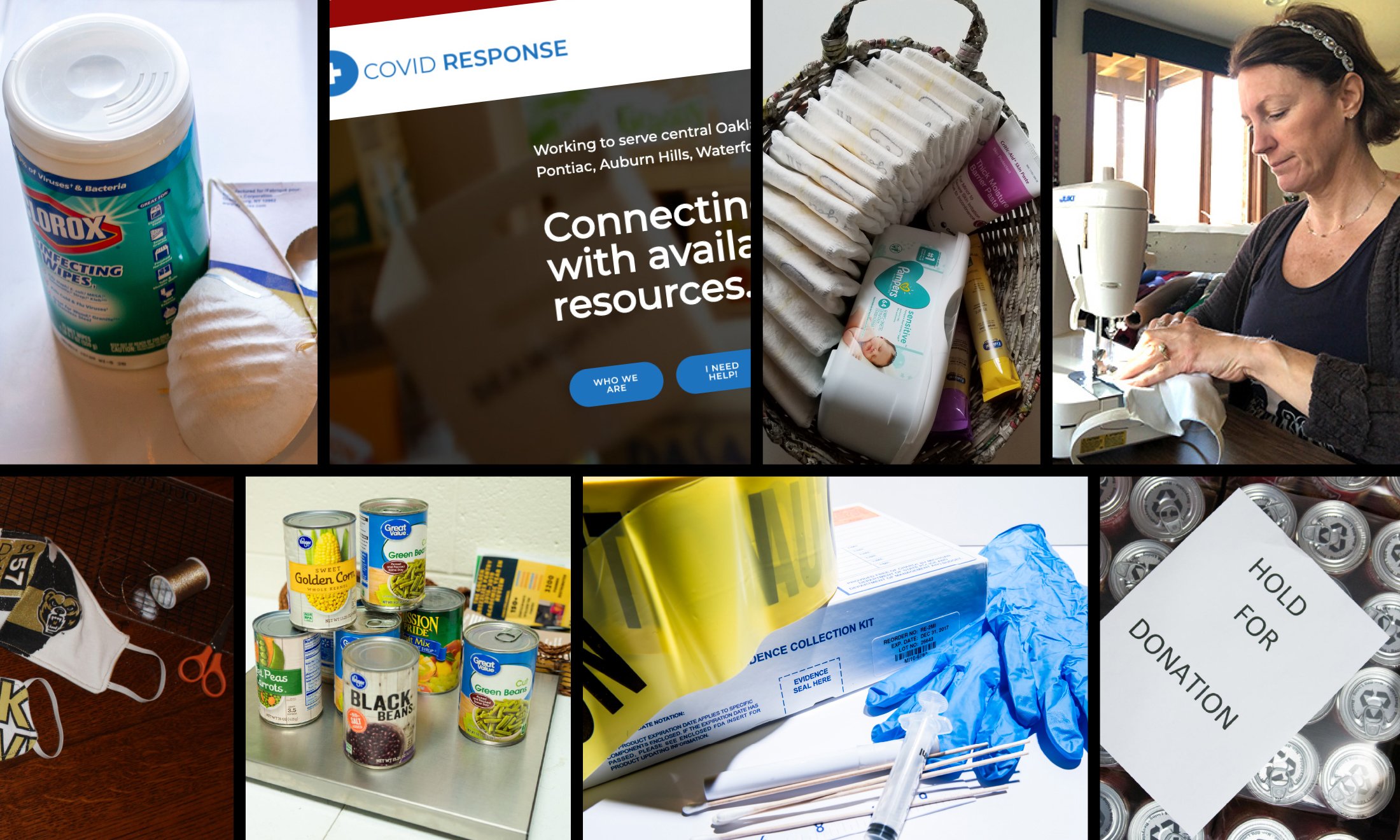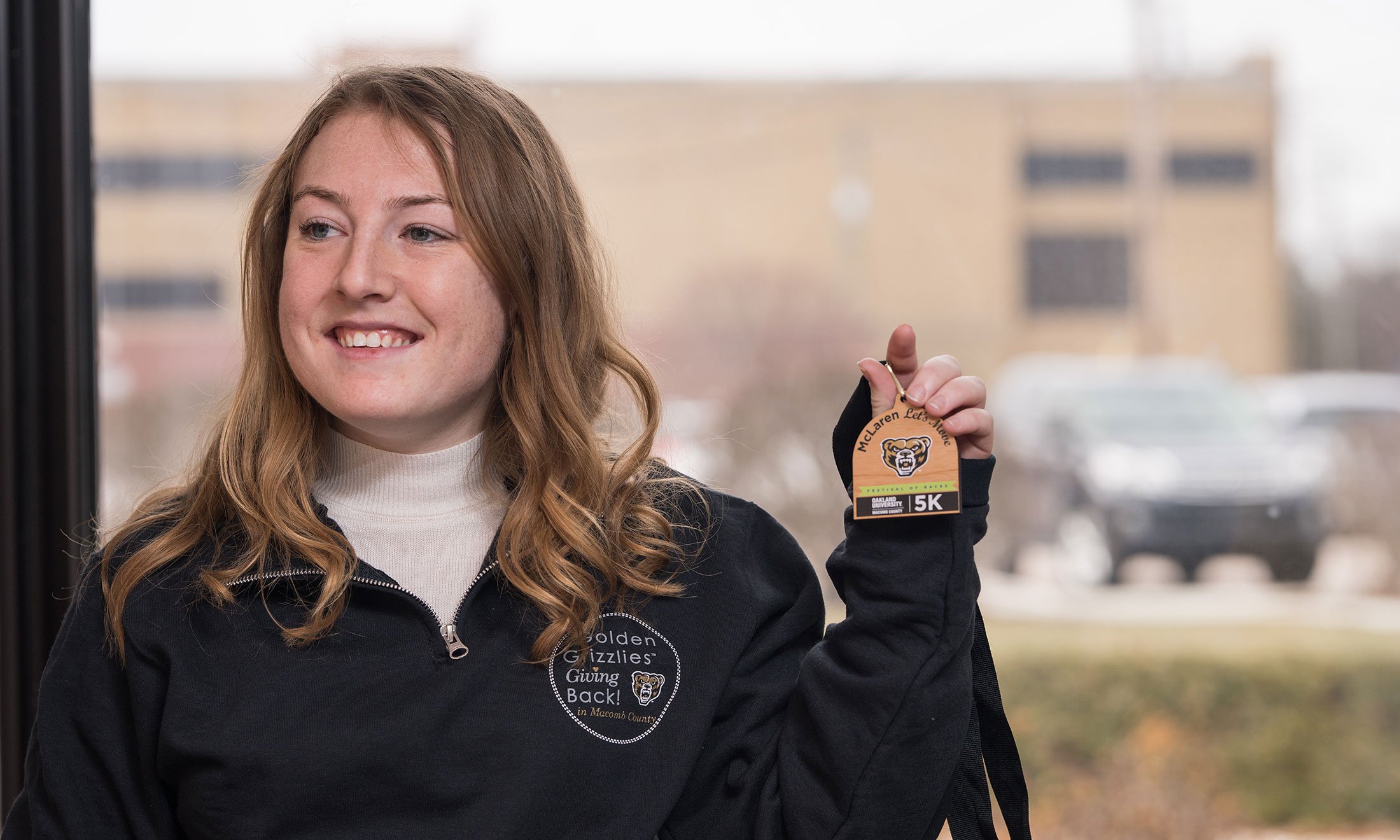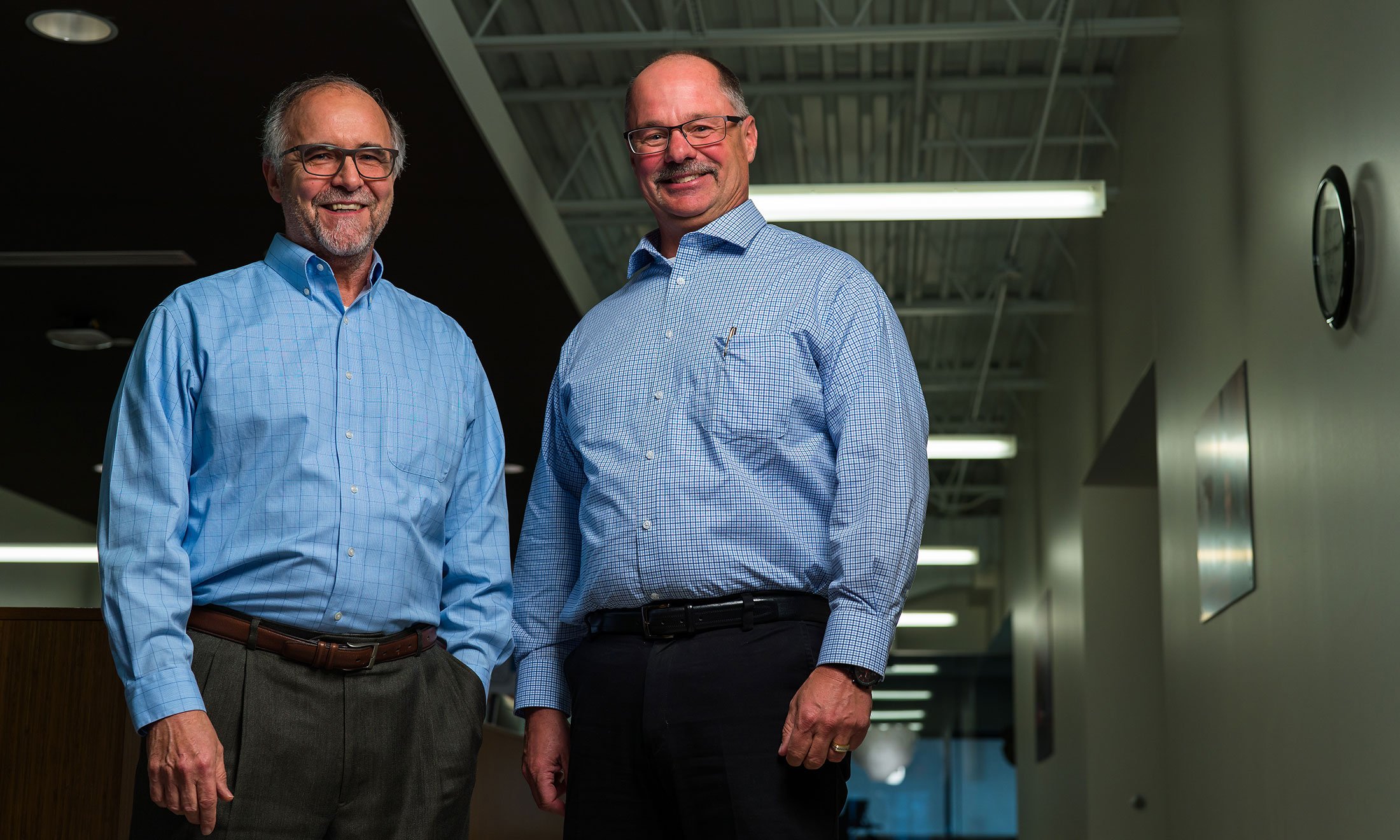Perspective: COMMUNITY OUTREACH
OU provides support to community and builds partnerships during pandemic
Oakland University Community Engagement Coordinator Diane Baldwin felt as overwhelmed as anyone when COVID-19 hit. But, she says three questions were at the forefront of her mind: “How do we help as a university? How do we stay relevant and connected to the community? And, what could that look like?”
During the last year, OU staff, students and faculty found countless answers to those questions. The university rose to the challenge by fulfilling community needs during the pandemic — distributing food, sewing masks, providing tutoring services and coordinating other numerous forms of relief and support.
OU Chief Community Engagement Officer Kevin Corcoran, Ph.D., says this was a natural extension of work the university was already doing before the pandemic.
“As a public institution, we exist not just to help people earn degrees, but we exist for a public good,” says Dr. Corcoran, who also serves as professor of psychology and dean of the College of Arts and Sciences.
In the earliest days of the pandemic, two OU alumni and one faculty member played pivotal roles in creating an online platform to help coordinate relief efforts across Oakland County and beyond. In mid-March, alumnus Cameron Underdown, CAS ’13, created mycovidresponse.org, a website where community members could both find and offer help. He soon partnered with fellow alumnus Chris Powers, SECS ’11, OU Associate Professor of Health Sciences Jennifer Lucarelli, M.A., Ph.D., and Pontiac Community Foundation founder and CEO Dustin McClellan to lead the effort. OU staff also established an email address, [email protected], for community members to contact if they wished to volunteer services during the pandemic.
Dr. Lucarelli and McClellan established a weekly conference call for community organizations to collaborate on their pandemic responses. Through the networking, OU immediately partnered with Pontiac-based Lighthouse to establish a food collection and distribution center at OU’s Oakland Center. Volunteers delivered donated food to people in need across Macomb, Oakland and Wayne counties.
OU also filled an urgent community need for personal protective equipment. Dr. Corcoran notes that students and faculty in OU’s School of Music, Theatre and Dance turned their attention from creating costumes to sewing masks.
“It was inspiring how people tried to figure out ‘What skill, what talent, what ability do I have that can make a difference for somebody else? Let me do that and let me engage other people,’” he says.
OU also helped many local K-12 students whose lives were upended by pandemic-related school closures. The Pontiac Community Foundation — an OU community partner — connected with a donor to get earbuds and laptops for families in the mycovidresponse.org network so they could stay connected to remote teaching and learning. And OU students partnered with Wayne State University’s Math Corps program to offer online tutoring for fifth and sixth graders in Pontiac.
Dr. Corcoran says he heard from several OU students who said they’d initially agreed to tutor because they were paid to do so, but “as a result of the experiences they were transformed.”
“They talked about looking forward to seeing those kids’ faces every morning on the screen, about being helpful, about building a connection and building a relationship,” he says.
Some people’s needs were surprising — and remarkably specific. Baldwin recalls one request, placed through mycovidresponse.org, from an immunocompromised musician who missed playing piano but didn’t feel safe leaving her home. Within moments, Baldwin contacted a friend whose husband was willing to donate a keyboard to the woman, and then delivered it herself.
“She did this happy-scream-dance thing when she opened the door to her apartment,” Baldwin says. “She couldn’t believe it.”
Dr. Corcoran says OU’s pandemic response is a prime example of how the university has expanded its community outreach efforts in recent years. Despite the many challenges COVID-19 has presented, it’s also helped OU lay groundwork to continue doing even more for the community after the pandemic has passed.
“I think we learned we’re more resilient than we realized,” Dr. Corcoran says. “As an institution, we sometimes take for granted what we have in terms of people power, but also in terms of resourcefulness. I think that’s the key takeaway. Now, I hope people hold on to that good lesson and let some of the other stuff fall by the wayside as we move forward.”
Learn more about OU’s bachelor’s and master’s degree programs offered at our locations in Clinton Township and Mount Clemens.

 June 03, 2021
June 03, 2021
 By Patrick Dunn with Patti Georgevich
By Patrick Dunn with Patti Georgevich








